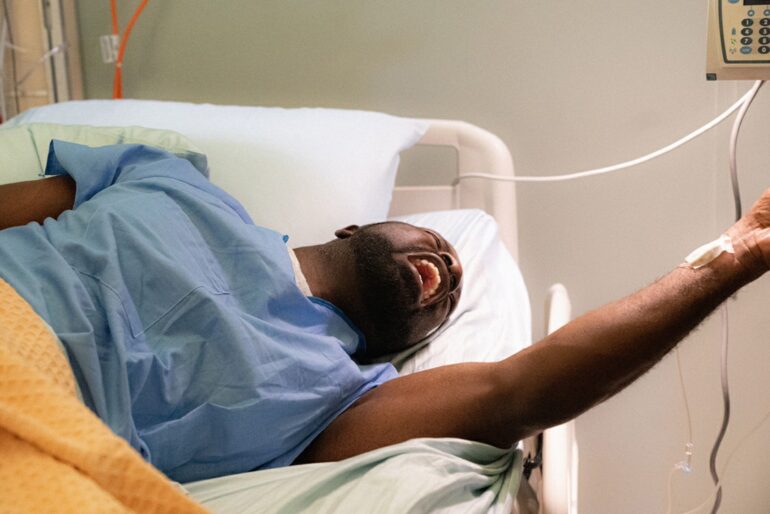The Netflix TV show, Evil, follows, questioning psychologist Kristen Bouchard (Katja Herbers) and seminarian David Acosta (Mike Colter) following cases that test what they believe are along the lines of science and paranormal. This fictional show goes into different aspects of faith from different cultures and the occult, but it shows instances of racial disparities in a time where it happened more than often.
One episode in particular shows one of the main characters, David Acosta, a black man that goes through his own deal of trials and tribulations, but one of them lands him in the hospital. A hospital that focuses its time and energy on taking care and resituating its white patients more so than its black patients. Once awakened from his procedure of being stabbed, he hears of this “evil nurse” who intentionally kills black patients. They call her the “angel of death.” In his foggy state of mind, he sees gruesome images of black patients being taken away in the middle of the night to be sacrificed and experimented on.
But what happens when this fictional situation isn’t so far off from the real world? The medical racism in Evil reveals the horrors of what black people in America go through on a daily basis when trying to receive treatment from medical professionals. Myths that create bias in the medical industry stemming from a history of prejudiced beliefs that Black Americans’ lives were less important than white lives. This prevented thousands of people from being saved and treated.
The real-life horror for Black Americans of being neglected and uncared for in the health care system is resulting in death and serious injuries to the community. Black Americans have been abused by the health care system for years, the result: a widespread lack of trust in mainstream medicine.
According to a survey by Pew Research Center, only 42% of Black Americans say they would get the vaccines if they were available today compared to over 60 percent of White and Hispanic adults who say they would immediately take the vaccine.
The reasoning behind this daunting statistic has nothing to do with paranoia, and everything to do with decades of racial disparities within the American healthcare system. Racial and ethnic minority groups are unequally affected by the economic, social, and secondary health consequences of COVID-19 because of their lack of access to and distribution of resources. This puts many racial and ethnic minority groups at increased risk of getting sick, having more severe illnesses, and dying from COVID-19.


